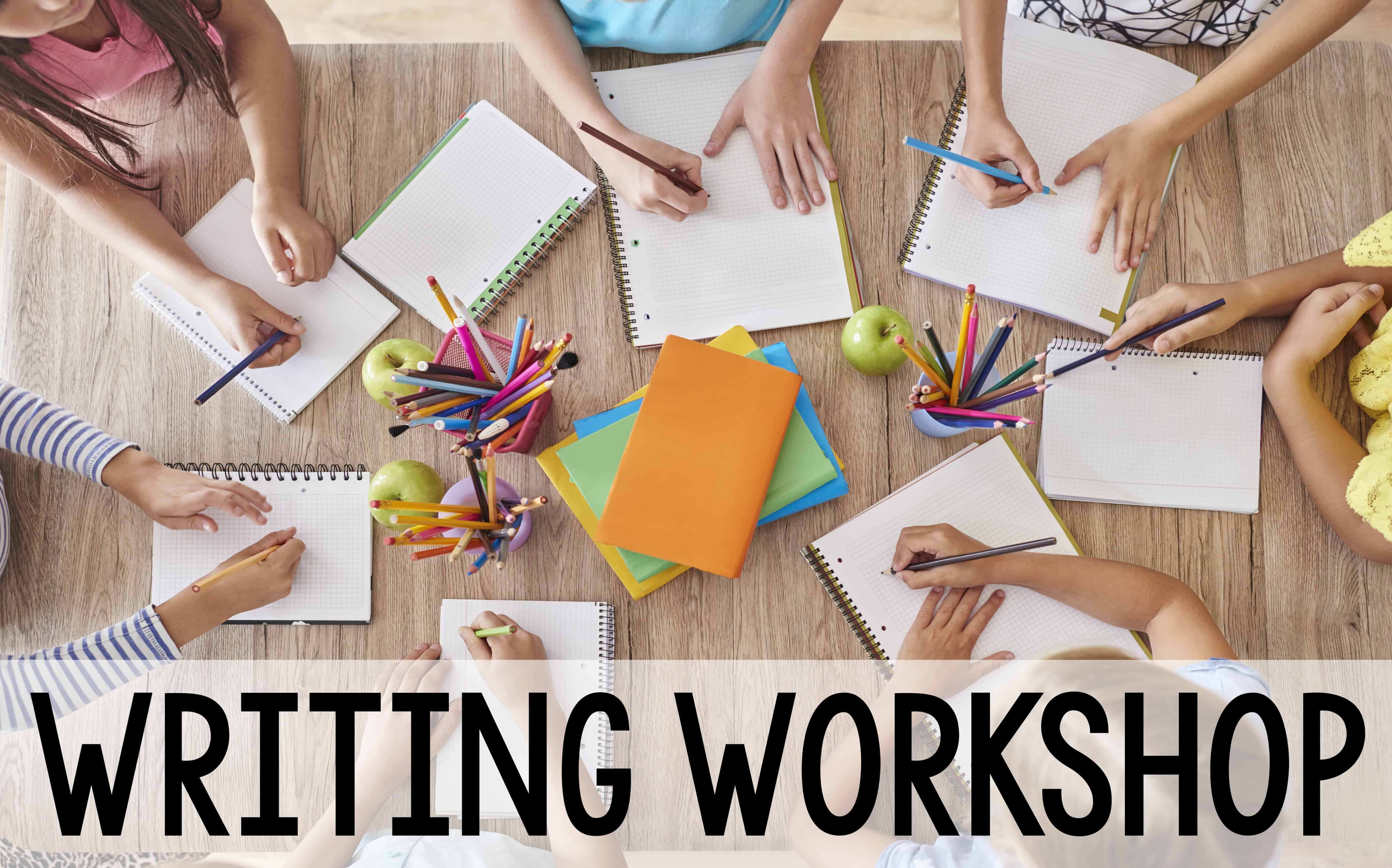
When I started teaching writing to elementary students, I had no clue how to actually teach writing! In fact, I could barely remember receiving any writing instruction as a child! Those first few years, I made writing instruction the focus of my professional development. I soon found that writing workshop was my favorite strategy to teach writing to upper elementary students. As with most instructional strategies, I found that some portions of traditional writing workshop that I needed to modify to better meet students’ needs.
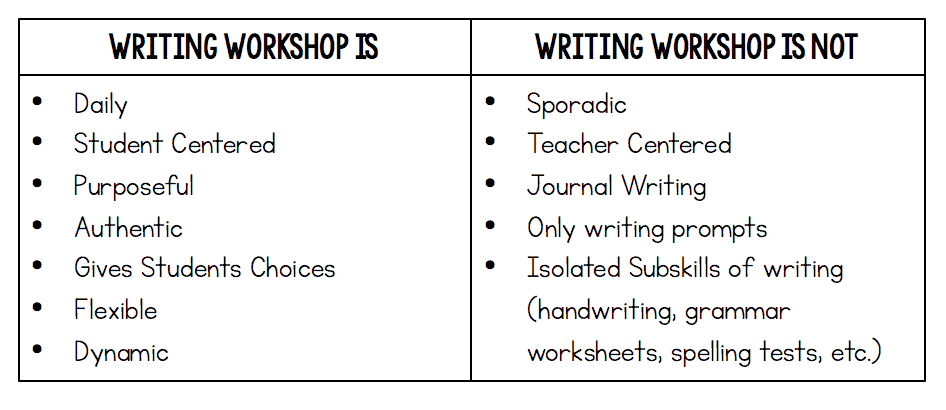
Writing Workshop
Teaching writing to elementary students through writing workshop is broken into three parts: mini lesson, independent writing, and sharing/closing.
- Mini Lesson-The mini lesson, sometimes called opening, is typically a five to ten minute lesson. These lessons should offer explicit writing instruction about a specific writing strategy. These lessons are teacher lead and typically centered around procedures, organization, strategies, craft, and techniques.
- Independent Writing-Students will typically write about topics of their own choice in their writing notebooks. Students will work through the writing process and will frequently be at different stages of writing during this time. The teacher will act as a facilitator and guide students as they write. Teachers should also conference with individual students during independent writing.
- Sharing-This closing is a five to ten minute portion of writing workshop. The teacher selects students to share their writing with their classmates. This gives students the opportunity to learn from each other by listening to examples of writing that fit a particular criteria, and gives students the opportunity to celebrate each others’ success. (monogrammed chair is not necessary)

My Changes to Traditional Writing Workshop
Guided Practice
One of my biggest concerns with teaching writing through writing workshop was the lack of guided practice in the traditional approach of writing workshop. I felt the need to give my students structured practice in the specific areas we were working on. In both reading and math, I provided scaffolding and guided practice with new skills, and I saw a need for that additional instruction in my writing instruction. To give students that extra structure and assistance, I added a Guided Practice component to my writing instruction.
Writing Prompts
Every thing I’ve ever read about writing workshop strongly recommends that students should select their own topics. I agree with that philosophy, and the majority of the time I do have my students choose their own topics. However, most states require students to take a formal writing assessment where students will be expected to complete a writing assessment where they are given a writing prompt. In addition to my ongoing writing instruction, I also need to help prepare my students for their state writing assessment. This is why I give the occasional writing prompt during my writing workshop time.
Teaching Writing By Genre
When teaching writing to elementary students, I teach the majority of my writing standards by units of study: genre by genre, rather than mixing all genres together. Each writing genre requires a specific skill set that is unique to that particular genre. A student won’t use the same writing strategies that they use in a fictional narrative in an informational essay. Of course all writing needs certain elements, such grammar and spelling, so I address that throughout the year. Just like when teaching new math concepts, students need time to practice writing in a particular genre, before introducing a new style of writing.
The Writing Process
As I writer, I could never follow the writing process in a linear manner. It would make be absolutely crazy to wait until the very end of a paper to edit and revise. Everyone has their own system of working through the writing process, so we shouldn’t try to force all students to follow the writing process as a rigid set of steps. Instead, we should view the writing process as a fluid process where students move in and out of stages.
The fluidity of the writing process was a difficult concept for me when I first started teaching, because I felt like I didn’t have control over my class’s progress. I wanted everyone to be at the same place at the same time, but that doesn’t always work in writing workshop. There are times, especially when I start a new genre, that I do keep my students together for short periods of time, but eventually you’ll have students at each part of the writing process.
Teaching Writing to Elementary Students – Physical Space
Your classroom arrangement is an important part of writing workshop. As in any classroom, you want the classroom to be warm and welcoming and to send students the appropriate message about the learning that will take place. In a writing workshop classroom you may find:
- large group meeting area
- small group meeting area
- mentor literature
- examples of student work
- accessible materials such as scissors, tape, staplers, etc.
- writing anchor charts
The classroom should be arranged to create space and facilitate efficient movement within the classroom, as well as provide easy access to materials for students. Of course, we all have to work with the space we’re given. As my class size increases, the options for classroom set-up decrease. I occasionally have classroom envy, so I had to throw out that disclaimer!

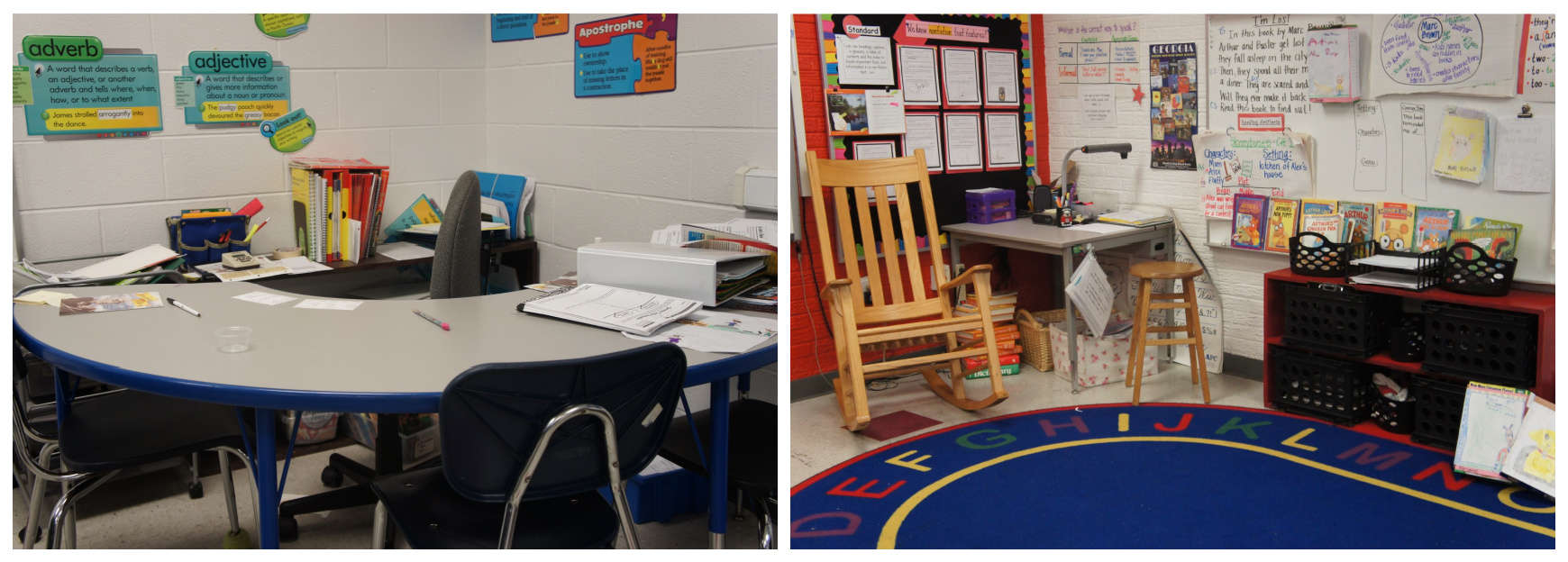
Writing Notebooks
Even in this digital age, students benefit from keeping a writing notebook. There is no right or wrong way to organize students’ writing notebooks. I’ve tried several different approaches, and have found what works best for my class. Students keep all their writing in their writing notebook, which is a 1-inch, 3-ring binder. I prefer binders to spiral notebooks, because students can add copied pages to their binders, and it’s much easier to reorganize if needed. The only problem I have with binders is that the paper does tear. I accidentally found reinforced filler paper, and it changed my life!
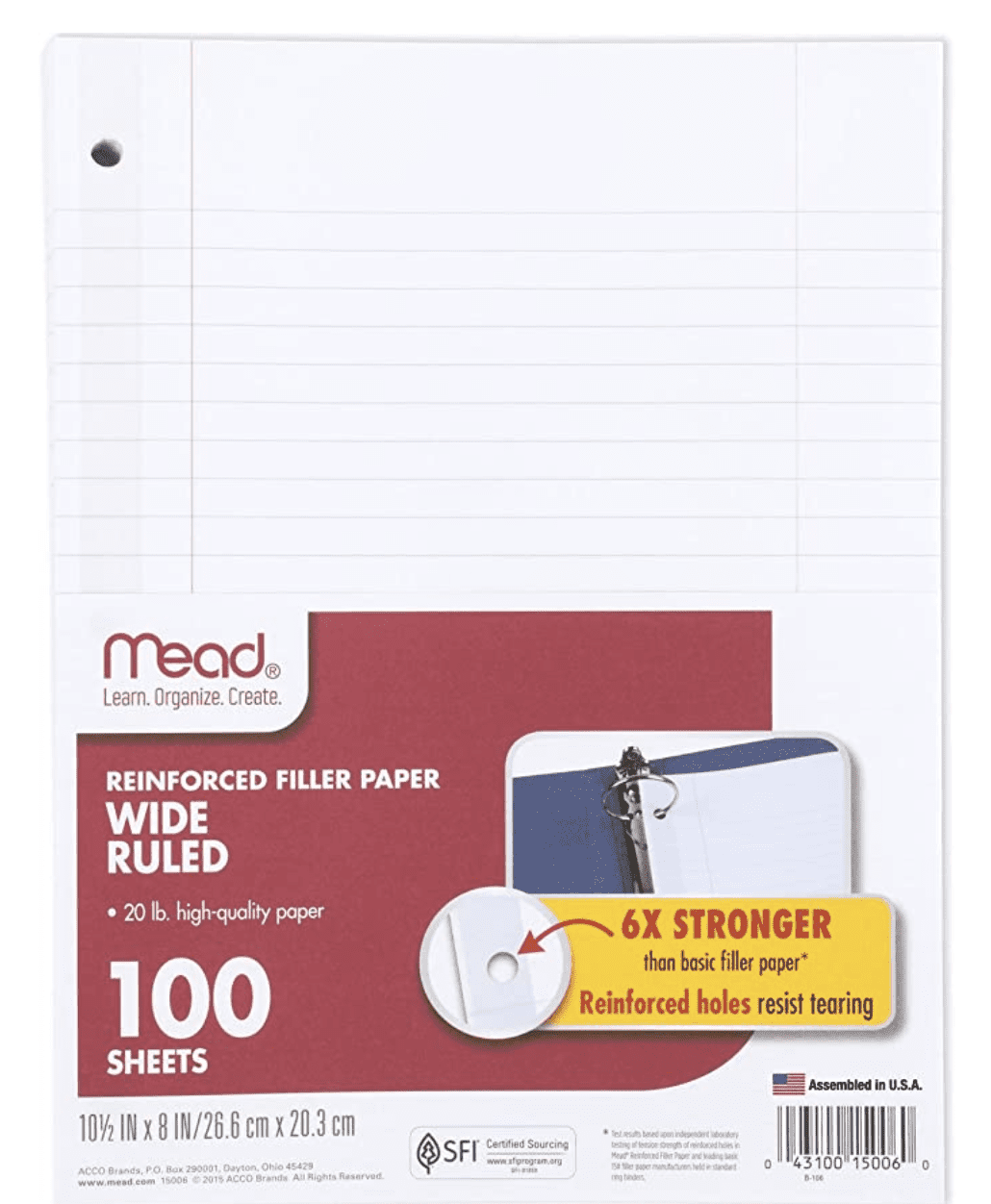
Students use page dividers to divide their folder into four sections: resources, personal narratives, fictional narratives, informational, and opinion. You can start the year with all the tabs included in students’ notebooks or add them as needed. I like to plan ahead as much as possible, so I get everything ready over summer vacation. I also like using the page dividers with pockets, because the pockets are perfect for storing things that can’t easily be added to the writing folders, such as sticky notes and other scraps of paper.
Writing Conferences
Writing conferences are one of the most important components to writing workshop. This is when you will truly get to know your students, as individuals and as writers. This is probably the most difficult part of writing workshop for me, because I want to focus on spelling mistakes, punctuation, and capitalization. It’s extremely difficult for me to look past conventions and handwriting and to focus on the content of the writing.
However, during a writing conference it’s best to focus on one thing at a time. If we meet with a student and focus on every area of their writing that needs improvement, we’ll totally overwhelm them. Instead, I should highlight some of the strengths of their writing by sharing what stood out. Then work with the student to determine what one thing to should focus on.
You’ll need to clearly explain your expectations of how to sign up for a writing conference. You can have students fill out a sign-up sheet or create a classroom display that will indicate who needs a conference.

You can keep track of your writing conferences through forms such as the one below. Be sure to download it here.
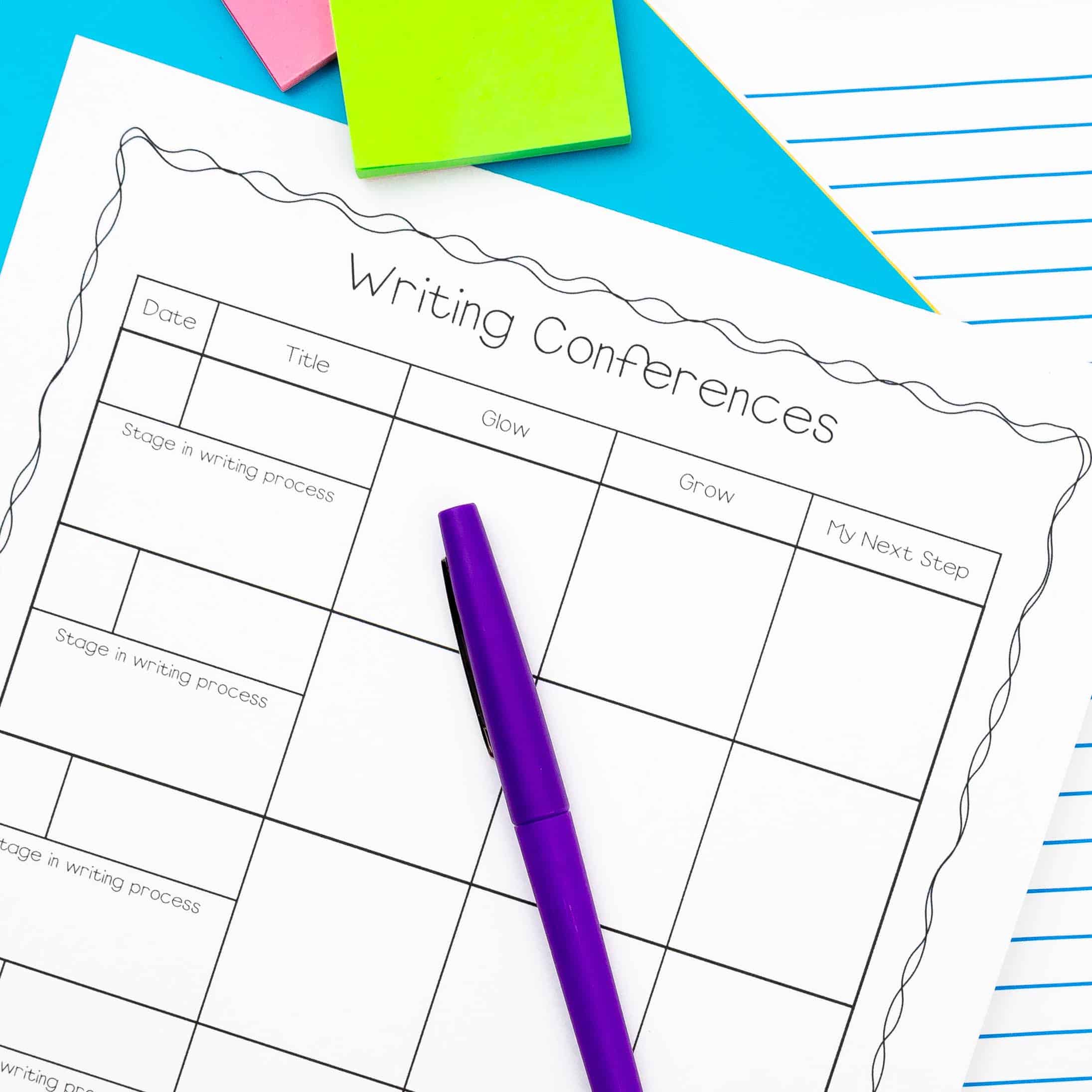
Teaching Writing Through Groups
I used to think that small groups were just for reading and math, but they have their place in writing workshop too. It’s helpful to form strategy groups to meet with small groups of students who share a particular need. After the mini lesson, monitor students and make sure everything is running smoothly. Then, you can meet with a writing group before beginning writing conferences.
These groups are small, flexible, and composed of students who have similar needs. During this time, teach specific writing strategies. For example, if I have a particular group of students who are writing a series of facts, almost like a list of daily events, then I may teach a small lesson on choosing one moment in time. I may read an another example of a mentor text, or even use student work as an example. Give students the opportunity to practice the strategy. After you finish working with the writing group, students return to their seats to continue their writing.
Mentor Text
For students to become good writers, it is crucial that they are exposed to large quantities of high quality literature. This is one of the many reasons that writing workshop is the perfect addition to reading workshop, because you are already reading to your students daily, as well as having students read independently and in guided reading groups. I love using picture books as mentor texts in my mini lessons, because they are short enough to read in one session. The first time a student hears a book their focus is not typically on the author’s craft, since they are focusing on the basic plot of the story, so texts that are familiar to students may be more effective than brand new texts. Rather than worrying about the reading level of a mentor text, focus on the quality of the text and the text’s incorporation of a specific writing strategy.

Grammar
When teaching writing to elementary students, we can’t forget about grammar. I don’t know what it is about grammar that makes it so difficult for students, but it’s the one subject area that my students typically have the most trouble with. It is absolutely painful for me to look at my students’ writing and see a tremendous amount of glaring mistakes. I don’t have a magic fix, but I will share two things I’ve learned that has helped me see an improvement.
One mistake that I made is that I allowed my students to develop bad habits while writing their first drafts. Yes, I want them writing fluently, and no, it’s not the time to edit, but that doesn’t mean students should become careless and ignore basic skills they’ve learned over time. Students should always give their best effort and not use this time as a free pass to ignore all convention rules.
I’ve also found that students have a very difficult time transferring skill based knowledge to their writing, which is why I also include grammar instruction into my mini lessons. This allows students to immediately apply these skills to their writing.
*note*I do teach other grammar skills in addition to what is taught in writing workshop. I’ve found that a combination is the best way to find that necessary balance between skills and application.
You can use a Grammar Skills checklists to keep track of which grammar skills your students apply to their own writing. Make a copy for each student to keep in a data notebook and observe their application of grammar skills. You can find more ideas for teaching grammar here.
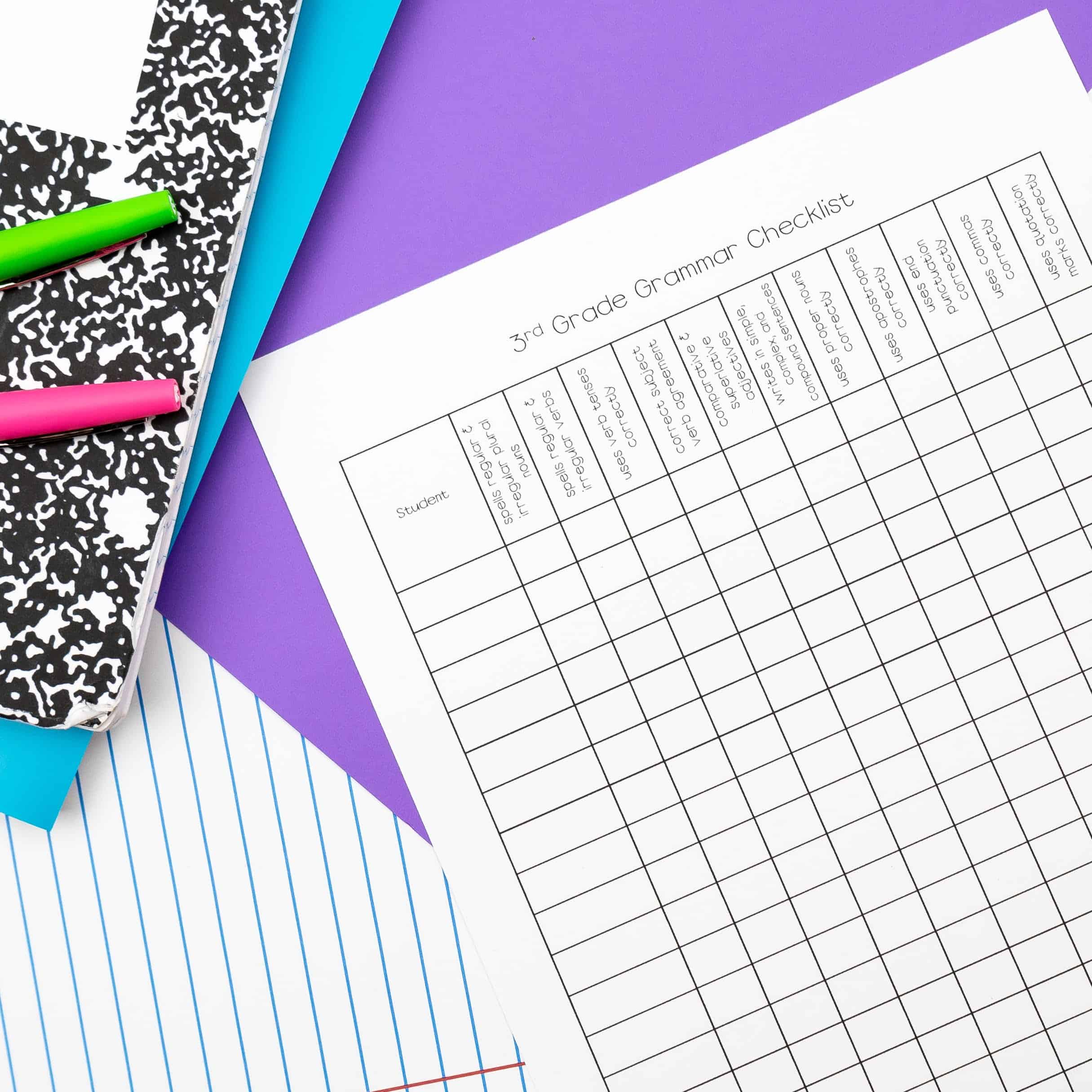
Teaching Writing to Elementary Students – Assessment
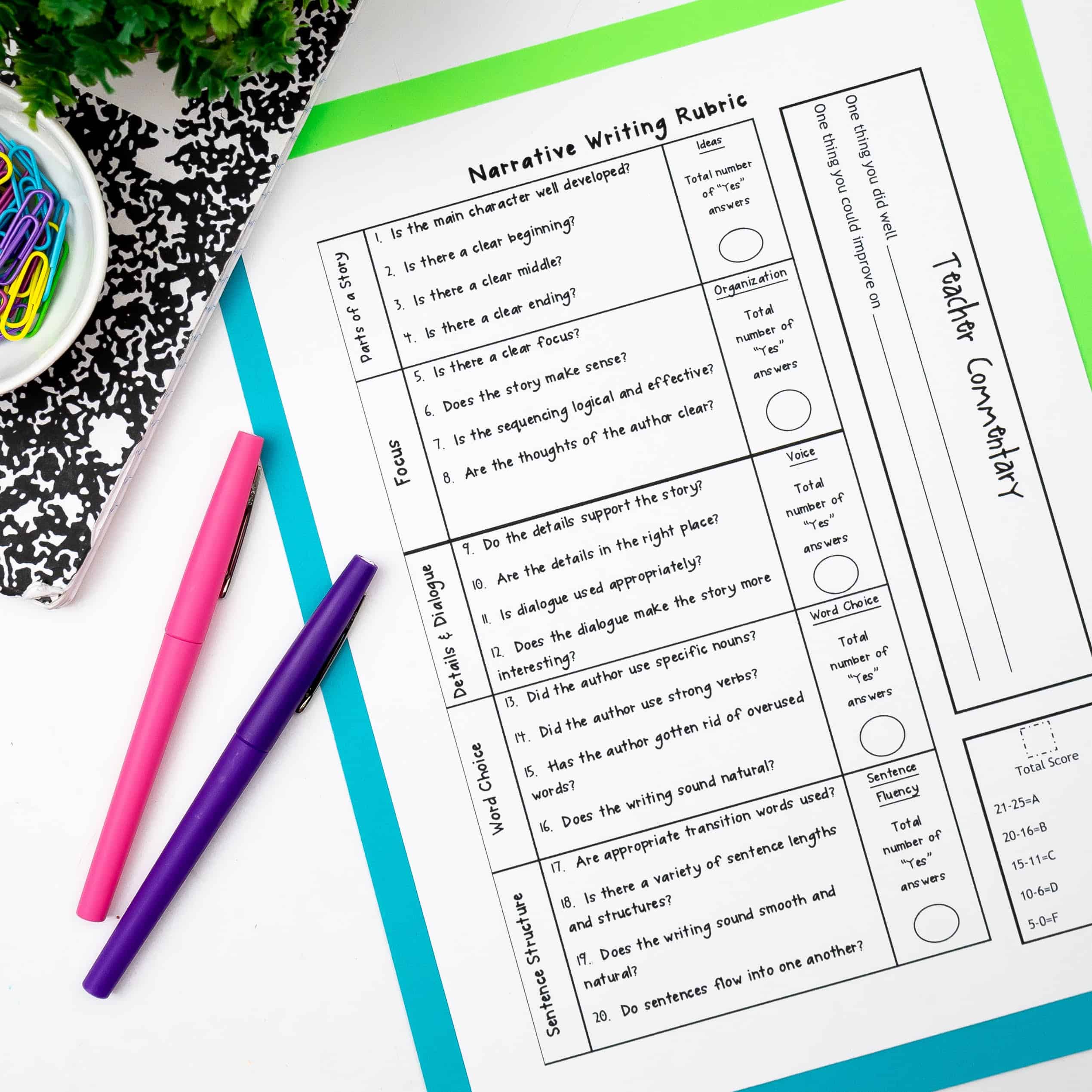
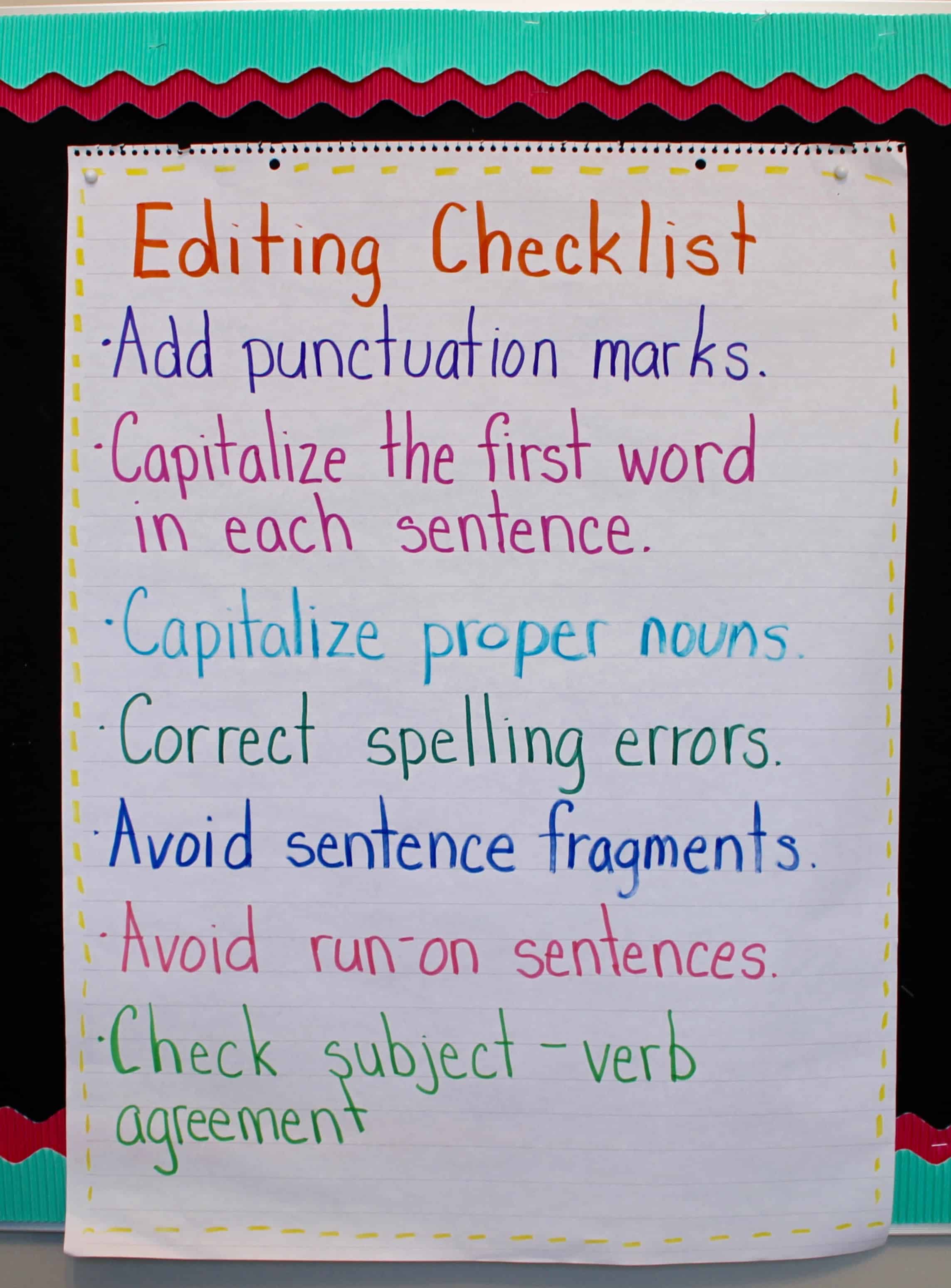
Common Concerns Teaching Writing to Elementary Students
Students’ Choice of Topics
You won’t always like your students’ choice in writing topics. I think my least favorite writing topic is anything to do with video games. It is appropriate to set boundaries on acceptable topics. As a whole group, I have my students set guidelines or boundaries on things they should not write about, and this typically includes anything excessively gory or violent.
Students Finish Too Quickly
How often have you heard a pencil slam down and a student call out “I’m finished!”? This is one of those bad habits that I have to break every year in every subject area. Their main objective is to get the work finished, not to do their best work or understand the material. It’s important to teach students that finishing a piece of writing does not grant them free time. They will write during writing.
Students Don’t Finish Anything
There will always be students who do not appear to finish anything. First, make sure students truly have enough time to finish their writing. You can also look at the student’s choice of topics to make sure the student is choosing topics that are manageable. If all else fails, I conference with the student to set goals where they will be required to finish a certain number of writing pieces.
Spread too Thin
During independent writing time I felt like 90% of my class wanted to schedule a conference with me, and my students would just sit and wait on me our entire writing time. This was frustrating on so many levels, because I wanted to help everyone, but there is just no way to meet with all of your students everyday. Eventually, I found that I have to limit the number of conferences some students can have over the course of a week.
Teaching Writing to Elementary Students – Procedures
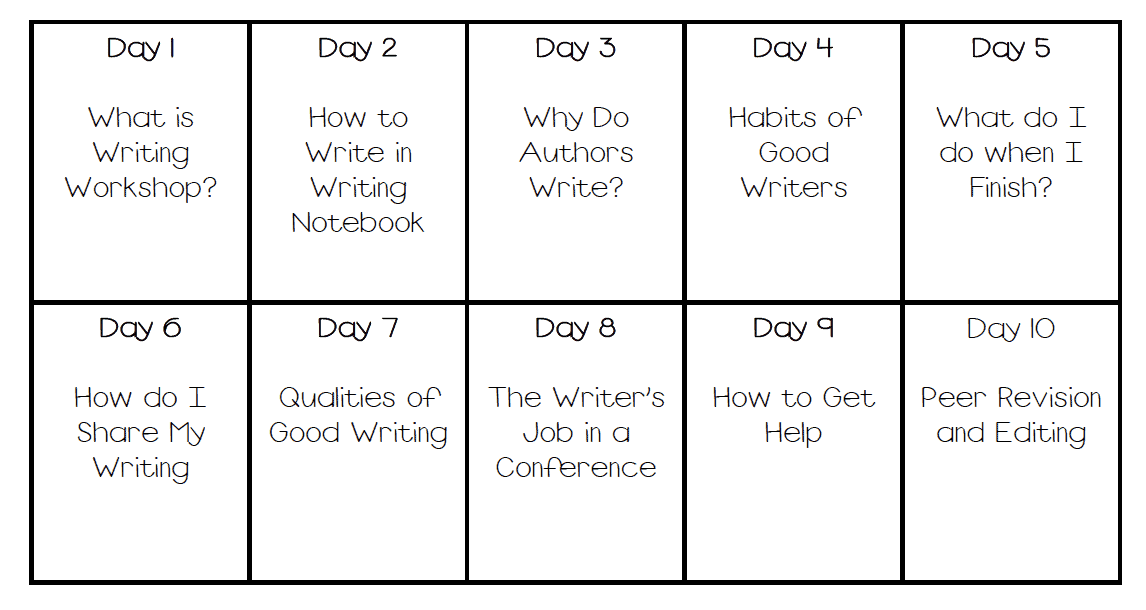

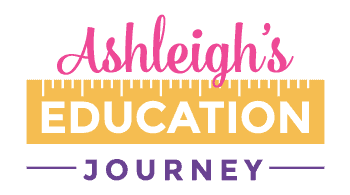

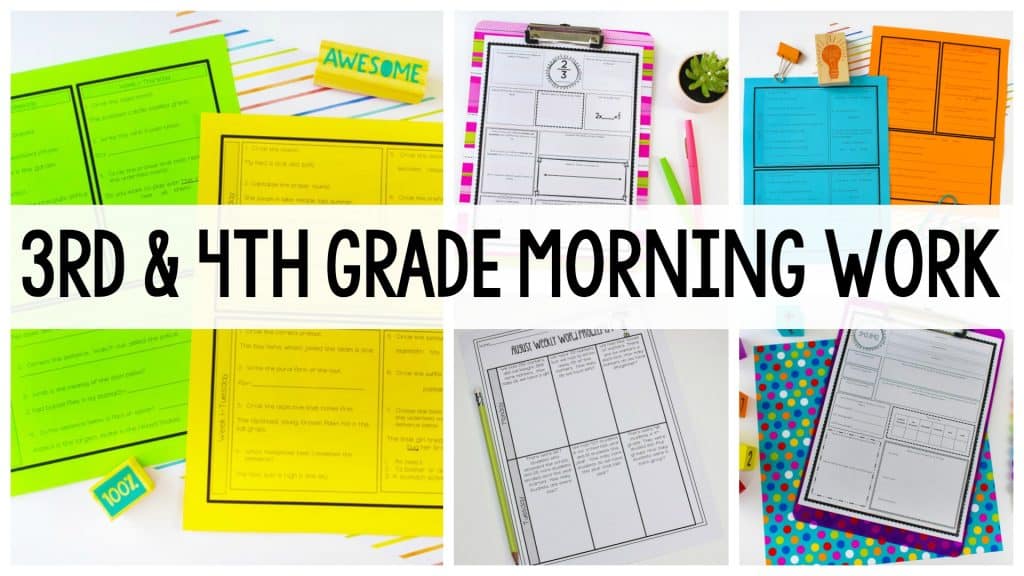
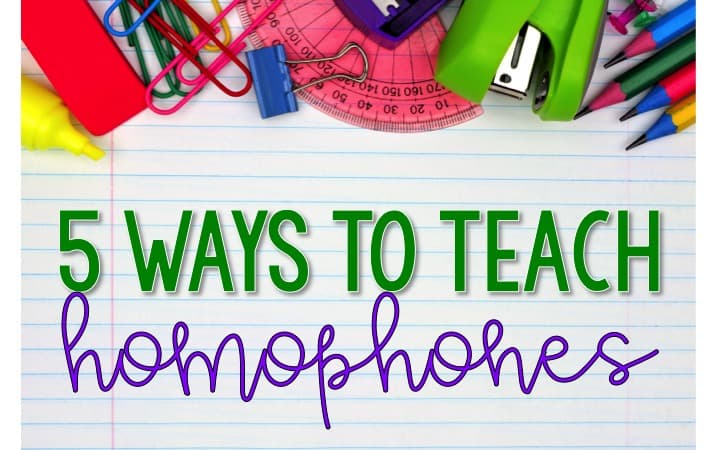
Hi Ashleigh,
I love how you have organized all of your curriculum units. I am moving to 4th grade and I am wondering how much time do you have for each subject? Also, do you integrate both your reading and writing workshops? I would love to see a sample daily schedule.
I may need to work this answer into a blog post! Every year it changes. My partner teachers writing or social studies, and I teach math and science to two groups. We teach our homeroom’s reading. Let me work on a sample schedule for you!
Hi Ashleigh!
I would also like to see a full schedule please! Thanks! ☺